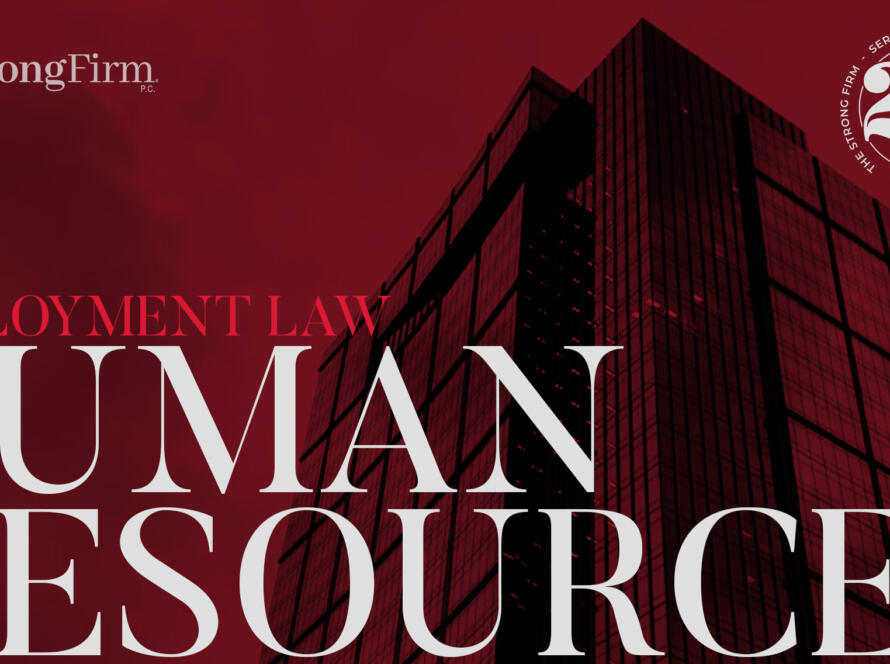The Strong Firm has helped Texas businesses navigate employment challenges for over 20 years, and certain mistakes appear consistently across industries and company sizes. Understanding these common pitfalls can help business owners avoid expensive disputes and create better workplace relationships.
Successful Texas businesses proactively address employment law compliance rather than waiting for problems to arise. The companies that invest in proper employment practices from the beginning consistently face fewer disputes and lower legal costs than those that treat employment law as an afterthought.
Classification errors between employees and contractors represent the most expensive mistake.
Many businesses misclassify workers as independent contractors when they should be treated as employees. This mistake can result in significant back payments for taxes, benefits, and overtime, plus penalties and interest. The classification depends on the actual working relationship, not just what the parties call it or want it to be.
Texas businesses must consider multiple factors when determining worker classification, including the degree of control exercised over the worker, the worker’s opportunity for profit or loss, the permanency of the relationship, and whether the work performed is integral to the business. The Strong Firm regularly helps businesses evaluate worker relationships and establish proper classification procedures.
Inadequate wage and hour compliance creates ongoing liability exposure.
Texas businesses must comply with both state and federal wage and hour laws, which can be complex for businesses with varied schedules, commission structures, or seasonal fluctuations. Common errors include miscalculating overtime, failing to pay for all hours worked, or making improper deductions from employee paychecks.
The firm’s experience shows that wage and hour violations often result from inadequate timekeeping systems rather than intentional misconduct. Businesses that invest in proper time tracking and payroll procedures avoid most wage and hour problems while demonstrating good faith compliance efforts.
Inconsistent policy enforcement creates discrimination exposure.
Having employment policies is only the first step – consistent enforcement and documentation are equally important. When similar situations are handled differently for different employees, businesses create legal exposure and workplace morale problems. Documentation of policy enforcement decisions helps demonstrate consistent and fair treatment.
Employment disputes often escalate when employees perceive unfair treatment rather than disagreeing with specific policies. Consistent enforcement of clearly communicated policies prevents most perception problems and provides strong defenses when disputes arise.
Missing or outdated employment documentation increases legal risks.
Many businesses use employment documents that don’t reflect current law or their actual practices. Outdated handbooks, job descriptions that don’t match actual duties, and missing acknowledgment forms can create more problems than they solve. Regular review and updates are essential for maintaining legal compliance.
Employment law changes frequently at both state and federal levels. Regularly reviewing client policies, procedures, and codes of conduct to ensure continued compliance with evolving legal requirements is crucial. Proactive updates prevent compliance problems and demonstrate good faith efforts to maintain lawful employment practices.
Inadequate accommodation processes violate disability and religious rights.
Texas businesses must engage in good faith discussions about reasonable accommodations for employees with disabilities or religious needs. Many companies either ignore accommodation requests or make assumptions about what accommodations are possible without engaging in the required interactive process.
Accommodation discussions should be documented, individualized, and focused on essential job functions rather than assumptions about employee capabilities. Strong legal council helps businesses develop accommodation procedures that meet legal requirements while maintaining operational efficiency.
Poor termination documentation creates wrongful discharge exposure.
When employment relationships end, proper documentation protects both employers and employees. Businesses that fail to contemporaneously document performance issues, policy violations, or business reasons for terminations often face challenges if former employees file unemployment or discrimination claims.
Termination decisions should be based on legitimate business reasons and documented accordingly. The Strong Firm regularly advises clients on proper termination procedures that protect both business interests and employee rights while minimizing legal exposure.
Social media and technology policy gaps create modern workplace challenges.
Modern workplaces involve social media, remote work, and personal devices in ways that didn’t exist when many employment policies were written. Businesses need updated policies that address current technology use while respecting employee privacy rights and legal limitations on employer monitoring.
Technology policies should address business needs for security and productivity while complying with privacy laws and employment regulations. The Strong Firm helps clients develop technology policies that balance business interests with employee rights in an evolving digital workplace.
The Texas employment law landscape continues to evolve, and businesses that stay current with legal requirements while maintaining fair and consistent practices create better outcomes for everyone involved. The Strong Firm’s experience shows that proactive compliance is always less expensive than reactive legal responses.
This information is provided for general awareness only and should not be considered legal advice. Employment law requirements vary by business size, industry, and specific circumstances. Always consult with qualified employment law counsel for guidance on your specific situation.


